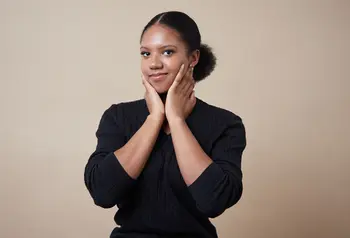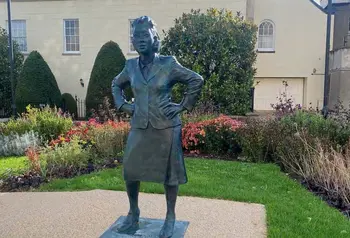Rebel Curators: reclaiming narratives of slavery at Bristol’s M-Shed

Bristol today hosts St Paul’s Carnival, one of the largest celebrations of African-Caribbean culture in Europe. We elected Europe’s first mayor from African descent and sparked seismic protests that changed the UK, from the Bristol Bus Boycott to the pulling down of Edward Colston’s statue.
But research showed that Bristol is also the seventh most unequal place for global majority communities to live in the UK. Slavery left behind deep roots of ingrained racism, and I don’t think it’s acceptable that these persist. I want my three children to mature into a world that does not judge them by the colour of their skin.
I run Curiosity Unltd, a think-and-do tank for racial and social justice. I’ve also had a long working relationship with Bristol Culture and Creative Industries. They’ve been brave and if they stick to the trajectory they’ve adopted so far, their work will be groundbreaking.
I’m currently working with them on a co-created reimagining of how Bristol’s M Shed museum tells the story of the transatlantic trafficking of enslaved Africans. This work, supported by The National Lottery Heritage Fund, also includes events throughout Black History Month and training for museum staff on handling conversations with the public around the difficult topics the gallery explores.
We’re seizing the opportunity this project provides because this is not just Black history, and it’s not just British history – this is world history. And more so, it’s our history.
Co-creation involves overlooked people telling their own history
We’re bringing the perspectives of African-Caribbean people to the fore. A series of short films, digital assets, vox pops and a physical intervention will help the M Shed’s gallery tell a rounded story. We hope to launch these to the public in January 2025.
The Rebel Curators are at the heart of this project. They’re a group of six people of colour from Bristol who bring their lived experience, commitment and ideas to the table to shape the narrative we want to tell. The group’s strength is in its diversity: they’re intergenerational, intersectional and international. We have people with Caribbean, African and Black British family heritage, with skills from filmmaking and dance to radio presenting. There’s a real mix of talent and ideas within the group.
Having such a range of perspectives is an absolute joy for me, it’s how we build bridges of understanding. What the Rebel Curators all have in common is wanting to be part of positive change, and to get underneath the skin of the story to tell untold truths.

Creating space for difficult conversations
For me there are two key ingredients to our success so far. The first is flexibility. The project has been designed to be clear and transparent about the journey we’re on, being ambitious about the destination but being open to changing direction.
The second is measures to protect people’s wellbeing. This is brutal history we’re dealing with, let’s be blunt. Taking a trauma-informed approach through the lens of race has been critical. We know that building people’s personal resilience is also important, so we have a toolkit that people can use themselves and a system of 1-to-1 conversations and follow-ups.
You lead by example with wellbeing measures – you can’t tell others to do it and not do it yourself – so this also includes me as the leader of the group. My own family history, by way of Guyana and Jamaica, is also intrinsically linked to slavery, and I don’t pretend that exploring slavery’s dark history doesn’t affect me.
The workshops we’re holding with the Rebel Curators are a safe space without fear of repercussions or misunderstanding. To create a constructive atmosphere we’ve created a code of conduct among ourselves, and we have a physical space where people can go if they need to take a break during our workshops.

Planning ahead for the project’s legacy
Importantly, the project has proactively planned for how to equip museum staff with the tools to have respectful conversations with the public about race and slavery once the Rebel Curators have finished this work. The training I mentioned earlier will help those members of staff build their own resilience in speaking about difficult topics and ensure the whole story will continue to be told.
The Rebel Curators and I have an eye on the future – in less than 10 years we will mark the 200th anniversary of the abolition of slavery. This milestone is a massive opportunity for Bristol, given the role it played at the tip of the triangular slave trade and how much the transatlantic slave trade supercharged Bristol’s economy. We’re seizing the opportunity this project provides because this is not just Black history, and it’s not just British history – this is world history. And more so, it’s our history.
Ideas for action
It’s important that organisations are prepared to talk about the whole of their story, including the dark and brutal bits. Here’s my advice for how organisations can be good allies for Black British history:
- It starts with leadership. It’s important that policies are backed up with action not just polite words. But remember that we are all leaders if we present our organisation’s work to the public.
- Get your basics right and don’t dismiss the details. Remember you’re dealing with communities who’ve felt excluded from heritage in the past. You need to earn their trust and this can’t be rushed.
- Accept that your role in co-curation is largely to listen. Pass the baton of power to your community creators.
- Be brave and be ready to deliver their suggestions. The worst thing you can do is invite people of colour in, hear their ideas, build their expectations and then disregard what they said they want.


